Part I: The Last Deadly Hour Thriller Series
Hi, everyone, thank you for taking time out to visit me here.
Initially, I will be talking about the characters in the first three books in The Last Deadly Hour Series. Story ideas come to writers from various sources. The idea for the Last Deadly Hour Trilogy came from my wife during a conversation we had while watching our children playing in the yard. This conversation happened before the full digital age.
It went something like this.
“Wouldn’t it be great if we could record the things we see with our own eyes,” my wife said. “You know the things we see all the time.”
“We do that with a camcorder,” I said.
“No,” when we use a camcorder we’re recording in the here and now. I mean being able to visually record past memories–”
“When we actually had a life,” I quipped.
“You know the memories in our minds. Sounds and all.” She continued, ignoring my comment.
“The things we saw and did that brought us to this point in our lives. Just think if someone invented a device that could do that. Then we could show the kids what we were like when we were their age. They could see our whole lives as we lived it stored in our memories.”
“Okay, what you’re suggesting is we’d be able to show the kids the things we saw and watched and did throughout our whole lives up til now.”
“Yes,” she said. “They would see our memories, as we lived them. Now, when we retell our stories, they’re just stories, they’re one dimensional. There’s no way to input our feelings or atmosphere of the times.”
“You know they say memories are best left in the past.”
“Who would ever say that. Never mind, it had to be a man.”
“So, by atmosphere, you mean they would see the world we lived in at the time. The clothes we wore, the tiny square black and white tv sets, your house, my apartment.”
I paused for a second as a thought ran through my mind.
“Would there be a way to cut out sections we didn’t want them to see? You know, edit out certain events.”
“Why, what’s wrong with them seeing…Oh I see. Yep, we’d have to clean it up before they could see it.”
“That would be great. Actually, it sounds pretty cool. It’s a great idea for a novel.”
“A novel?” she asked, tilting her head.
Her questioning look told me I had to say more. “Yes, a book. Like a cool sci-fi or techno thriller book.”
She squinted, “A sci-fi or techno thriller book? My memories aren’t sci-fi or techno thriller memories. It should be a love story. Our story is funny and tearful. It could be a romcom.”
I frowned. “A romcom…that will never happen.”
She put her hands on her hips and frowned at me. “You’ve never written a book.”
“True, but it’s never too late to start. Not with your memories or my memories, but someone of importance. Someone who has a secret or saw something important.”
I paused for effect. My wife didn’t seem to notice, so I continued.
“Do you know how to come up with a book idea?” I asked.
“No, I’ll bite. How does one come up with an idea for a book?”
“You ask yourself a question and then you fill in the blanks.”
“What question?”
“What if.”
“What if what?” she said, frowning at me.
“What if someone created a device that could record and store all of our visual memory’s for future play back, and what would or could they do with it. And how would it affect the world?”
“Okay, and then what.”
“Then you proceed to answer the question by weaving a story around it.”
“Really? That’s all there is to it.”
“Yep, basically. But the story is in the answer and how you weave it. It’s a lot of work. I always said I would write a book before I was forty-five.”
“I thought you were joking about that. Besides, you’re past forty-five.”
“I wasn’t joking,” I said, ignoring the age comment. “It’s actually on my bucket list.”
She began to turn back toward the kids, stopped and looked at me.
“You have a bucket list?”
“Yes. It’s not written down yet. I’ve been too busy, but it’s all up here,” I said, pointing to my brain.
“In your brain?”
“Yes,”
“What did I ask you to do before we went to the store earlier?”
“Hmm. I don’t remember.”
“Exactly! “You don’t have a bucket list.”
“I do, too!” I insisted.
“I think you should do it.”
“Do what?” I asked.
“I think you should write a book. You’ve always been good at making up stories.”
I wasn’t sure if that was a compliment or not.
“Really?”
“Yes, remember the story you told me about the chopped up body you found in the trunk of your car while you were stationed in Hawaii. It took you fifteen years before you told me it wasn’t true. I really believed you.”
“Oh yeah, that was funny,” I chuckled. “How about the lottery tickets, that was a funny one, too.”
“No it wasn’t. You had me convinced we would have won millions if I had done as you asked and bought tickets with the numbers you gave me. That was mean…and a little funny.”
“Good times,” I said.
“Write your book, but don’t forget to give me credit for the idea.”
“I wouldn’t think of doing otherwise, dear.”
And so began my journey into becoming a novelist. The little snippet of my wife’s idea consumed me as I thought hard to think of a story worthy of the idea.
Then one day I was reading an article about education back in the early days of America’s founding.
Americans were originally centered on home and church, and the Bible was the focal point of all education. The first schools were Christian schools started by the church. Out of the first 108 colleges, 106 were founded on the Christian faith including Harvard, Yale, and Princeton.
Today, these colleges are no longer practicing Christianity in any real way. A lot of this change was due to a change in worldviews from Christian ideas to humanistic ideas.
I like conspiracy stories and I remember thinking. Hmm. This is a good start. As I investigated, I found out how humanistic ideas had invaded every part of American life in the last three quarters of a century or so. I wondered, Is this all by chance or could…
I continued researching and found that news organizations, media outlets, and most of the government had slowly, over those seventy-five years, been taken over by humanist and idealists and thereby flooded with humanistic ideas.
Christian thought was quickly replaced with humanistic thought. Today, all the way down to K-12, children’s education has become a playground where humanist educators control what children are taught.
I wondered. Is this all by chance or could someone be orchestrating this? My idea for using a secret society came out of this research. I believe every good novel has a wee bit of truth in it. It’s the wee bits that keep you wanting more.
At that point I knew what my story would be framed around.
I’m one of those strange people who love prologues. They set up or surround a story in a manner that makes you want to know, “What’s going to happen next?” or “How does this fit into the grand scheme of things?”
I wanted a great prologue, and I wanted to start the story back in time but wasn’t sure exactly how far back. After a discussion with my eldest son about my ideas for the book, he suggested I start it back in Nero’s day. So, I took a deep dive into history and settled on AD 64, Nero, and the great fire that consumed Rome.
The strange thing about Nero is there is not a lot of information about him. Was he a bad leader or a good leader? Some scholars believed he was easily manipulated and that fit my story idea. But I needed a manipulator, too.
Tigellinus, who was the prefect of the Praetorian Guard during Nero’s time as emperor, was the perfect candidate.
The idea for Sodalitas, which in Latin loosely means Secret Society, came along shortly after that. I will talk more about Sodalitas (the bad guys) and its creation in Post II.
I hope you enjoyed reading this post. If so, comment below and let me know what you think of the characters, the action, and the stories in Descended, Sodalitas, and Oracle or to ask any questions.
Until next time, God Bless, Michael.


